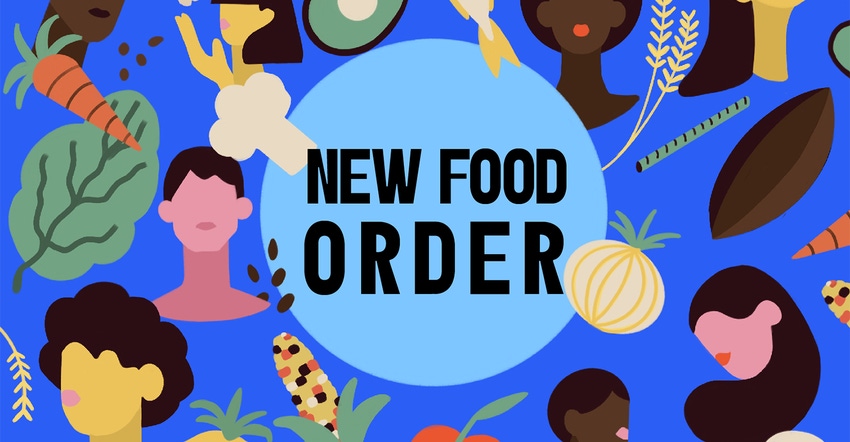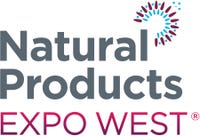In the 14th episode, HowGood’s Ethan Soloviev dives into how companies can tangibly, effectively, holistically improve their ecological and social impact.
March 9, 2023

Cultivating a regenerative paradigm isn’t about completing a checklist to win awards. It involves establishing an interconnected, symbiotic relationship with nature.
“I think of regeneration as a paradigm, as a process instead of principles, as a technology that can be used to enhance how we think and work, how we design, what we create,” says Ethan Soloviev, chief innovation officer at HowGood, a food sustainability rating company and intelligence platform. HowGood partners with a wide range of CPG brands, including White Leaf Provisions, Danone, General Mills and Kraft Heinz, and retailers such as Ahold Delhaize.
A regenerative paradigm can also refer to how living things can regenerate and create something new. “We’re not trying to restore something,” Soloviev says, because it’s not about going backwards to what something was previously. “We’re not trying to just sustain something, to keep it how it is and make sure it doesn’t get any worse. We’re actually trying to generate something new that has not existed before at any time in history.”
That notion is more important than ever as businesses shift their operations toward large-scale sustainable, regenerative practices and want to do so in a tangible, practical manner.
It’s also about how a company communicates the impact of its food or products, whether that’s its carbon footprint, water usage, biodiversity impact, labor risk, animal welfare or any number of other metrics that demonstrate its efforts around regeneration,
In this episode of New Food Order, a podcast investigating the business of tackling climate and social crises through food and agriculture, Louisa Burwood-Taylor, the head of media research at AgFunder and editor of AgFunder News, and Danielle Gould, the founder of Food+Tech Connect, discuss what it takes to cultivate a regenerative belief system with ideas, values and habits—and the business benefits that can come from it.
Asking the tough questions
Companies need to shift out of problem-solving mode, Soloviev says, and ask: How do we regenerate the potential of this company, this crop, this product category?
“Regeneration is not an abstract [idea],” he adds. “It has to be super practical. It has to be super tangible. And I think a lot of the problem is we have big abstract ideas.”
It goes beyond understanding labor risks and carbon footprints, changing ingredients and suppliers, or reformulating products. It involves thinking internally, as a company, when making decisions about projects, workstreams and partnerships.
A company that wants to change how it makes internal decisions can’t do it from a “mechanical point of view,” Soloviev says, where everything is broken down, fixed and scale based.
It’s not about simply replicating best practices. “That’s thinking like a factory, like a machine, not like a living system,” Soloviev says.
Instead, it’s important for businesses to ask: What is the potential of this product, this ingredient and this company? What is the whole system we are working to transform? What is it calling to be? And how do we help?
Knowledge fosters change
To think more holistically about systemic change, companies need more information and actionable insights.
Armed with HowGood’s massive product and ingredient database—Soloviev says it’s the largest in the world—companies get a multi-dimensional snapshot to quickly make more informed decisions that carry fewer negative and more positive impacts. The database, which includes 247 sustainability metrics across 33,000 ingredients, chemicals and materials, helps leaders assess their brands' impact as they focus more on sustainability and regeneration.
Soloviev says companies looking to become more regenerative should look at eight core metrics: greenhouse gas emissions, water usage, land usage, the level of processing (including the megajoules of energy required to process ingredients and products), biodiversity, labor risk, soil health, and animal health and well-being.
Smaller companies don’t have to hit all eight, he notes. “But as a bigger company, you want to at least be aware of your sort of high-level impacts in each of those different realms to get a full viewpoint.”
In sharing this information, HowGood doesn’t claim to “know everything” or believe that businesses “should do exactly what we say,” Soloviev says. “It’s really, if you hold all the insights to anything having to do with sustainability, you will make better decisions.”
HowGood saw that when it started working with retailers. Through its partnership with supermarket giant Ahold Delhaize in the Washington, D.C., metro area, consumers were given the high-level sustainability impact of every product sold in those stores.
“We didn’t tell them what was right,” Soloviev says “But consumers made their own decisions, choosing the more sustainable products and that was beneficial for both the retailer and the consumer.”
Soloviev also points to White Leaf Provisions. The organic, biodynamic baby food brand is committed to regenerative farming, sourcing directly from individual producers. But it also educates its consumers while encouraging the industry to move in a regenerative direction to help evolve the global consciousness.
“Give the information and it will go in the direction that is toward an overall greater impact,” Soloviev says.
Listen and subscribe to the podcast here.

Read about previous episodes of New Food Order:
Read more about:
Future of FoodAbout the Author(s)
You May Also Like




